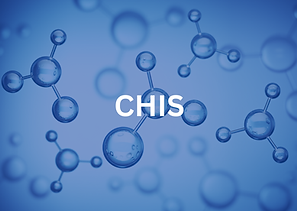EVERGi

SUSTAINABLE MULTI-ENERGY SYSTEMS
EVERGi focusses on the design and operation of multi-energy systems (integrating various thermal, electric, mechanical and (bio)chemical energy carriers) that don’t need fossil fuels and are financially feasible and socially accepted. For this purpose, EVERGi has developed a platform and self-learning energy management algorithms that can optimise societal and technical KPIs in real-time.
Special attention also goes to stakeholder engagement and the inclusion of key technologies to enable the energy transition such as electric powertrains for vehicles, automation, bidirectional charging infrastructure, and energy demand & supply forecasting.
In addition, EVERGi has proven its vast expertise in life cycle sustainability assessment of technologies, quantifying the societal impact of all these technologies, considering environmental as well as economic and social KPIs in a current as well as a future context.
EVERGi’s decarbonisation technologies & disciplines:
EVERGi’s projects:
EVERGi’s labs:
MOBI

ELECTROMOBILITY RESEARCH CENTRE
MOBI, is a multidisciplinary research center for electromobility that combines a unique mix of technical, environmental and socio-economic skills to develop sustainable electrification strategies supported by all stakeholders.
MOBI has vast expertise in many areas, ranging from electric and autonomous driving to pioneering batteries, intelligent drive systems, energy management, powertrains, digital twins, and charging infrastructure. Beyond technical developments, the focus is also on providing valuable insights into consumer behaviour, business and policy, while also exploring the integration of electric vehicles into multi-energy communities and smart grids. This interdisciplinary approach allows MOBI to serve as a one-stop shop, offering a comprehensive range of solutions to shape a sustainable and, electrified future.
MOBI’s decarbonisation technologies & disciplines:
MOBI’s projects:
MOBI’s labs:
FLOW

THERMODYNAMICS AND FLUID MECHANICS GROUP
FLOW conducts research and provides education in Thermodynamics and Fluid Mechanics, two closely linked disciplines that underpin many technological innovations. The focus lies on modelling thermal-fluid systems, bridging fundamental and applied research. Key application domains include energy (e.g. wind, bioenergy, hydrogen, thermal networks, plasma-assisted combustion), aeronautics (unsteady rotor aerodynamics, flow control), and aerospace (atmospheric re-entry, aerospace plasmas).
FLOW’s decarbonisation technologies & disciplines:
FLOW’s projects:
CHIS

DEPARTMENT OF CHEMICAL ENGINEERING
CHIS focuses on both basic and applied research in technology, using advanced computer modelling and experimental testing. Their research provides sustainable separation technologies designed for decarbonized chemical productions, by exploiting new possibilities in materials engineering, process intensification, and electrification strategies. Results are valorized in the fields of adsorptive Carbon Capture, purification and storage of renewable chemical energy carriers (e.g., biomethane, e-fuels), and downstream separation and purification in waste stream valorization processes (e.g., biomass to bio-alcohols).
CHIS’ decarbonisation technologies & disciplines:
CHIS’ projects:
CHIS’ labs:
SUME

SUSTAINABLE MATERIALS ENGINEERING
SUME novel design strategies for sustainable (hybrid) materials and the fundamentals of the processes to obtain the envisioned structures. It combines the research units 'Physical Chemistry and Polymer Science' (FYSC) and 'Electrochemical and Surface Engineering' (SURF).
FYSC research activities are focused on 'structure - processing - property' relations in polymers for developing multi-functional materials with improved performance. The emphasis is on advanced thermal analysis for materials'characterization. Specific expertise is developed in non-traditional cements, focusing on utilizing secondary raw materials for eco-friendly construction.
SURF explores the development of the next generation of high-performing and multifunctional metal surfaces, their production and applications.
SUME’s decarbonisation technologies & disciplines:
SUME’s projects:
SUME’s labs:
BIC

BATTERY INNOVATION CENTRE
BIC is the main Belgian expertise centre for research on and development of energy storage systems (ESS) for traction and stationary applications.
BIC offers advanced infrastructure and expertise for designing, prototyping, and testing different kinds of batteries, hybrid capacitors, and supercapacitors, supporting both academia and industry. Their work is grounded in in-depth experimental analysis, contributing to international standardisation and ESS benchmarking. An extensive experimental database also supports advanced modelling from material to system level.
BIC’s decarbonisation technologies & disciplines:
BIC’s projects:
BIC’s labs:
ETRO
This is your Team section. It's a great place to introduce your team and talk about what makes it special, such as your culture and work philosophy. Don't be afraid to illustrate personality and character to help users connect with your team.
ETRO.RDI

DEPARTMENT OF ELECTRONICS AND INFORMATICS
ETRO.RDI wants to deliver unique value through multidisciplinary engineering. They focus on electronics, photonics, advanced signal processing, sensor design, artificial intelligence (AI), and data capture and communication, contributing to advancements in both industry and academia.
The group develops innovative hardware and software solutions for applications in healthcare, smart cities, autonomous systems, and communication networks. Their research often integrates AI and machine learning to enhance data processing, automation, and decision-making based on and both physical and computational analysis. They also explore Internet of Things (IoT), sensor networks, and biomedical engineering, working on wearable health devices and remote monitoring technologies.
ETRO.RDI’s decarbonisation technologies & disciplines:
ETRO.RDI’s projects:
ETRO.RDI’s labs:



.png)

.png)
.png)
_edited.jpg)




_edited.jpg)






_edited.jpg)















